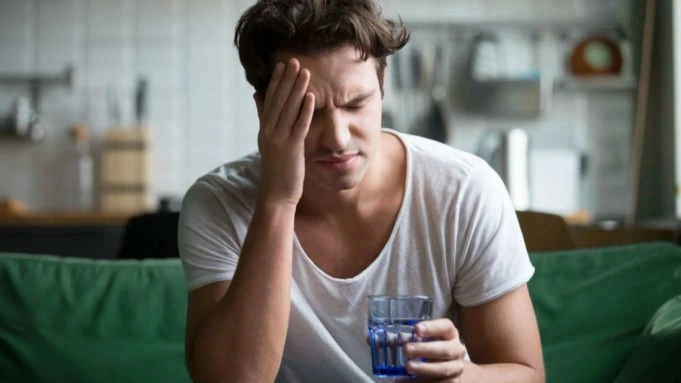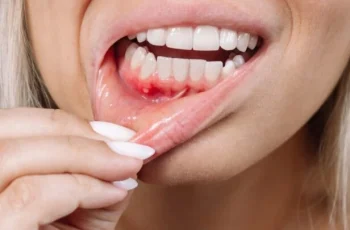Hangovers are a common after-effect of alcohol consumption, and they can leave you feeling physically and mentally drained. The symptoms can range from dehydration and low blood sugar to brain fog, fatigue, nausea, and even muscle aches. Understanding the causes of a hangover and implementing remedies can go a long way in alleviating its discomfort. Hangovers occur as a result of several factors, including dehydration, low blood sugar, electrolyte imbalances, alcohol withdrawal, and inflammation of the stomach and intestines. This article discusses effective home remedies you can use to cure hangovers and regain your vitality.

What Causes Hangovers?
Before delving into the remedies, it’s important to understand the underlying causes of hangovers. Some of the key factors include:
- Dehydration: Alcohol is a diuretic, meaning it increases urination, leading to the loss of fluids and electrolytes.
- Low blood sugar: Alcohol consumption causes an increase in lactic acid levels, which in turn lowers blood sugar, contributing to hangover symptoms.
- Electrolyte imbalances: As you lose fluids, essential electrolytes like sodium and potassium are depleted.
- Alcohol withdrawal: The body experiences withdrawal from alcohol, contributing to symptoms such as headaches and anxiety.
- Intestinal and stomach inflammation: Alcohol irritates the stomach lining and intestines, leading to discomfort, bloating, and nausea.
- Sleep disturbances: Alcohol affects the quality of your sleep, often leading to poor rest during the night.
Now that we understand the causes, let’s look at some effective home remedies for hangovers.
1. Drink Lots of Water
Rehydration is one of the most important and effective ways to treat a hangover. Alcohol causes dehydration by promoting excessive urination, which depletes the body of vital fluids. To combat dehydration, drink plenty of water throughout the day, especially if you feel the effects of a hangover. Water helps restore hydration levels and flush out toxins from your system.
A common recommendation is to drink a glass of water before bed and sip water in between alcoholic beverages. By keeping yourself hydrated during and after drinking, you can significantly reduce the chances of experiencing severe hangover symptoms.
Although many people turn to sports drinks for electrolyte replenishment, there is no substantial research to prove they are more effective than water in curing hangovers. The key is consistent hydration.
2. Eat a Healthy Breakfast
Hangovers often lead to low blood sugar, which exacerbates symptoms such as fatigue, nausea, and irritability. Eating a healthy breakfast can help restore blood sugar levels and provide your body with the essential nutrients it needs to recover.
When alcohol breaks down in the body, it causes a spike in lactic acid levels, which contributes to a decrease in blood sugar. A nutritious breakfast can help replenish glycogen stores, which in turn supports energy production and alleviates hangover symptoms.
Foods high in protein, healthy fats, and carbohydrates are ideal for helping the body recover. Consider having scrambled eggs with whole-grain toast, or a smoothie filled with fruits, vegetables, and protein powder. Although there is no definitive research on the “best” foods for hangover recovery, the focus should be on nutrient-dense, wholesome foods that can help regulate blood sugar and support recovery.
3. Get Plenty of Rest
One of the hallmark symptoms of a hangover is fatigue, often coupled with irritability and headaches. Alcohol disrupts sleep patterns and reduces the quality of rest, contributing to these feelings of exhaustion. While alcohol may initially make you feel sleepy, it interferes with the deeper stages of sleep, leading to reduced recovery.
Getting a good night’s rest is essential to recovering from a hangover. When you sleep, your body heals itself and restores energy levels. Adequate rest can help reduce symptoms like muscle aches, brain fog, and mood swings, allowing your body to recover from the physical stress of drinking.
If you’re unable to sleep due to discomfort, try lying in a dark, quiet room and practicing deep breathing exercises to relax your mind and body.
4. Drink Tea or Coffee
Caffeinated beverages like tea or coffee can help combat the fatigue and brain fog that often accompany a hangover. Coffee, in particular, is a stimulant that can boost energy levels and improve concentration. Additionally, both tea and coffee contain antioxidants, which can help your body neutralize the harmful effects of alcohol.
However, it’s essential to note that caffeinated drinks are also diuretics, meaning they can lead to more dehydration. If you choose to drink coffee or tea, make sure to continue hydrating with water to counteract the dehydration caused by caffeine.
While caffeine may provide temporary relief, it does not alter the alcohol content in your bloodstream, and it will not speed up the process of alcohol metabolism. It’s merely a way to help reduce feelings of fatigue.
5. “Hair of the Dog” – Drinking Alcohol the Next Day
The concept of drinking alcohol the following day to cure a hangover is known as the “hair of the dog.” While it may sound counterintuitive, some people claim that consuming more alcohol can relieve hangover symptoms.
The theory behind this remedy is that alcohol inhibits the conversion of methanol (found in alcoholic beverages) into formaldehyde, which is the toxic compound responsible for hangover symptoms. By consuming more alcohol, you prevent the formation of formaldehyde and allow the body to safely eliminate methanol.
However, this approach is not recommended as a long-term solution. While it may provide temporary relief, it can also perpetuate unhealthy drinking habits and contribute to alcohol dependence. If you choose to try this remedy, exercise caution and remember that it is not a sustainable cure for hangovers.
6. Try a Mobile IV Drip
For those experiencing severe hangovers, mobile IV therapy has become a popular solution. This involves receiving an intravenous (IV) drip with a blend of fluids, electrolytes, and vitamins directly into the bloodstream. The treatment is designed to hydrate the body, restore electrolyte balance, and reduce hangover symptoms more quickly than drinking fluids orally.
IV therapy is generally more effective for individuals with severe dehydration or those who need fast relief. It can be especially helpful for those who struggle with nausea or vomiting, making it difficult to keep fluids down.

Conclusion
While hangovers are an unpleasant consequence of alcohol consumption, there are several home remedies and strategies you can try to alleviate the symptoms. Hydrating with plenty of water, eating a nutrient-rich breakfast, getting enough rest, and possibly consuming caffeine or tea can all help reduce the effects of a hangover. Additionally, while the “hair of the dog” method may offer temporary relief, it’s not a recommended long-term solution.
Ultimately, the best way to avoid hangovers is to drink in moderation and stay hydrated while consuming alcohol. But if you’re already feeling the effects of a hangover, these remedies can help you feel better and recover more quickly.

